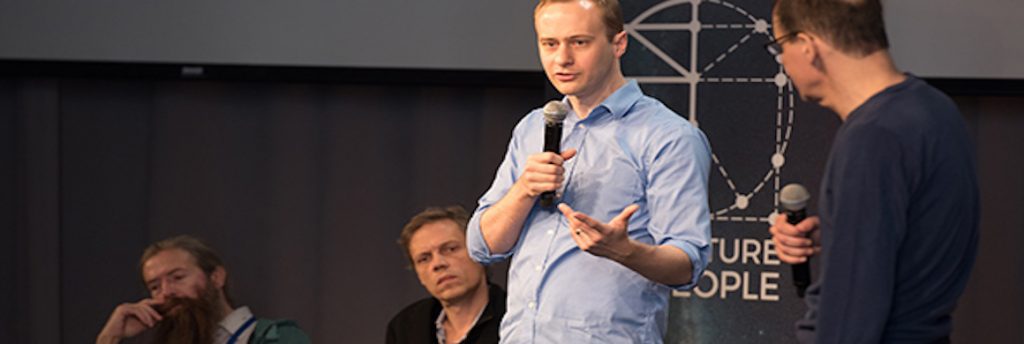MIT Hosts Future of People Conference

MIT Sloan published an article by Amy MacMillan Bankson about the school’s recent “Future of the Human Body” panel, which took place at this month’s Future of People Conference.
Three experts weighed in on the moral implications of gene-editing technology: Media Lab assistant professor and director of the Sculpting Evolution Group Kevin Esvelt, SENS Research Foundation chief science officer Aubrey de Grey and MIT Technology Review senior editor Antonio Regalado.
Known as “gene drives,” CRISPR technology “allows scientists to easily and quickly remove, add or alter parts of the DNA sequence.” The debate rages on about the ethics of “engineering” the human race. The International Summit on Human Gene Editing called it irresponsible in a recent statement. Esvelt doesn’t believe we will use CRISPR to edit the human genome. He explained that his lab developed a “limited function version of a gene drive” dubbed a ‘daisy drive,’ in response to the horrors of eugenics.
He elaborates: “We have this daisy drive concept where the drive system loses an essential element every time it gets copied. And, when it runs out, it stops. So if you are making a change to an incredibly complex system that we do not understand—and that applies to the human body … you are not going to be able to reliably anticipate all of the consequences and side effects, so you should start small.”
Regalado adds, “You use the word eugenics … and it is a bad word … but as soon as we do eugenics and we like it, we don’t call it that anymore.”
Keynote speaker and author David Brin says we need to get over our collective fear of progress since evolution can’t be legislated. “Choosing not to proceed with augmentation and technology is far worse. We need to show that we are aware of the dangers and the one way in which we can deal with them is transparency [and by] keeping all the discussion open and above the board and inspecting all the dangers ahead of time.”
